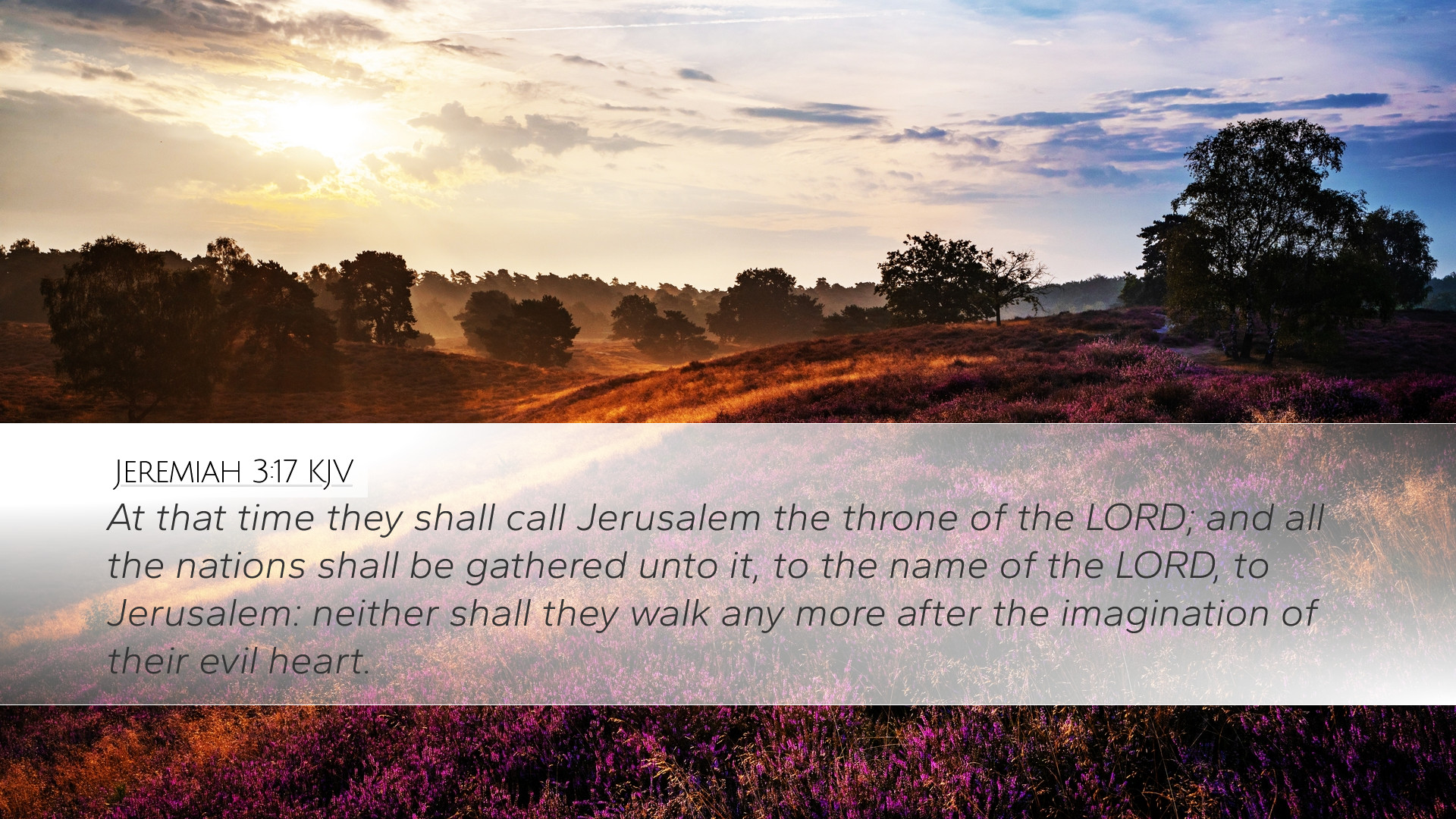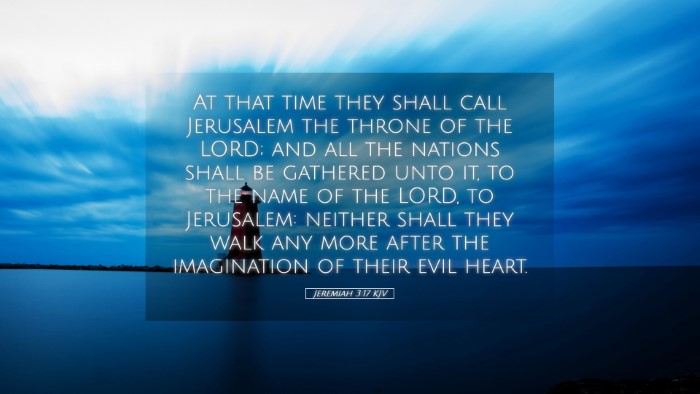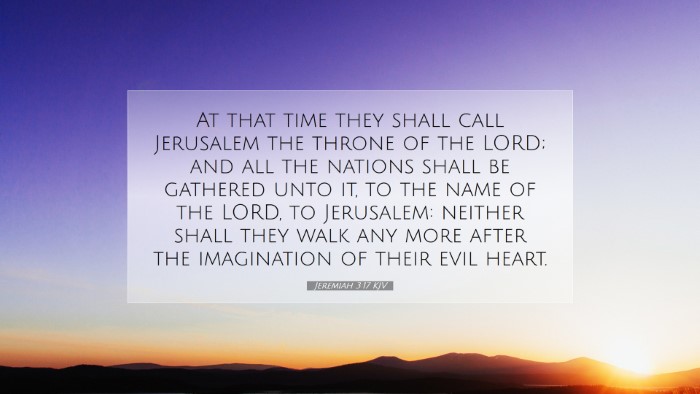Commentary on Jeremiah 3:17
Verse: "At that time, they will call Jerusalem the Throne of the LORD, and all nations will gather in Jerusalem to honor the name of the LORD. No longer will they follow the stubbornness of their evil hearts."
Introduction
The verse Jeremiah 3:17 serves as a profound culmination of the prophetic messages delivered by Jeremiah. It draws a picture of restoration and divine sovereignty, depicting Jerusalem as the center of God's reign on Earth. This commentary aims to distill insights from various public domain sources, including Matthew Henry, Albert Barnes, and Adam Clarke, to enrich the understanding of this passage for pastors, students, theologians, and Bible scholars.
Theological Significance
In this verse, we see a significant transformation where Jerusalem is elevated to be the "Throne of the LORD." This shift symbolizes God’s return to His people and the establishment of His kingdom. Such a theme was a recurrent motif in Old Testament prophecies, indicating not only God's judgment but also His redemptive purpose.
Jerusalem as the Throne of the LORD
Henry emphasizes that Jerusalem's designation as the "Throne of the LORD" signifies a place of worship and divine authority. The transformation from a city of desolation to a glorious throne illustrates both God’s power to redeem and the eventual restoration of His covenant people. This is a prophetic vision of hope, wherein God himself reigns amidst His people.
Gathering of Nations
Barnes discusses the significance of "all nations" coming to Jerusalem. This indicates a universal acknowledgment of God's sovereignty and reflects God's intention for His salvation to extend beyond Israel to the entire world. The imagery suggests a future time of peace where nations are united in reverence before the one true God.
Renunciation of Evil Hearts
Clarke points out the critical phrase: "No longer will they follow the stubbornness of their evil hearts." This indicates a necessary heart change—a move away from rebellion towards obedience and humility before God. The promise foretells a renewal of spiritual allegiance where God's presence leads to moral and ethical transformation among the people.
Contextual Analysis
To fully grasp the depth of Jeremiah 3:17, it is essential to understand the historical and cultural context surrounding the prophet Jeremiah. Preceding this verse, Jeremiah articulates the failures of Israel concerning their covenant with God. The nation is characterized by apostasy, disobedience, and idolatry. Yet, in the midst of this prophetic lamentation, God offers hope—a future restoration that is provided in grace.
Prophetic Context
Henry elucidates that this declaration comes during a time when Israel had frequently turned away from God, opting instead for idols and practices that betrayed their covenant relationship. Yet, despite their failings, God's promises remain steadfast, showcasing His enduring commitment to His people.
Eschatological Implications
The prophetic call to return emphasizes that the fulfillment of God's promises extends beyond mere national restoration; it anticipates the advent of a messianic era. Scholars interpret this passage as pointing towards a future time when Christ establishes His kingdom, thus further deepening the theological richness of the verse.
Practical Applications
The implications of Jeremiah 3:17 resonate deeply with contemporary believers. It invites reflection on the nature of God's kingdom and the call to align our lives with His purposes.
Call to Worship
This verse serves as a reminder of the importance of worship in spirit and truth. In recognizing Jerusalem as the "Throne of the LORD," believers are called to elevate their worship practices, seeking the presence of God earnestly.
Unity Among Nations
The prophecy's vision of nations gathering to honor God calls for a commitment to unity within the body of Christ. It underscores the need for Christians to work towards reconciliation and harmony, reflecting the heart of God who desires all nations to know Him.
Personal Transformation
Finally, the acknowledgment of our "evil hearts" leads to a necessary introspection. Pastors and theologians are encouraged to foster environments where congregants can engage in genuine repentance and experience transformation through the power of the Holy Spirit.
Conclusion
Jeremiah 3:17 encapsulates a rich tapestry of hope, divine authority, and transformation. It challenges present-day followers of Christ to seek God earnestly, to experience His restoration, and to live in a manner worthy of the calling to which they have been called. As we meditate on this significant verse, let it inspire us to pursue unity, worship, and personal renewal in the light of God’s profound love and grace.


